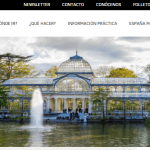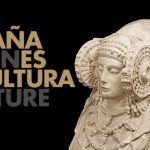Experts in cultural heritage believe that shared governance is key to making profitable investments in cultural tourism by involving the local population, according to the conclusions of the first Smart Destinations Network Cultural Heritage Work Group Meeting, which Palma wrapped up today.
Over 45 experts in cultural heritage participated in the meeting, which was organised by SEGITTUR together with the local government of Palma and the council of Majorca. It was opened by the President of the council of Majorca, Catalina Cladera; the mayor of Palma, José Hila; and the mayor of Calviá and President of the Spanish Federation of Municipalities and Provinces (FEMP) Tourism Commission, Alfonso Rodríguez.
During the meeting, the challenges cultural tourism is facing were analysed. These included the need for public policies which encourage territorial balance and domestic tourism, as well as the use of technology to improve access to resources.
The President of the council of Majorca noted that “European funds provide an opportunity to speed up our strategy for sustainability and smart tourism. The fundamental objectives Majorca is working on focus on three key areas: preserving and invigorating cultural heritage, extending the Smart Destination network of municipalities and continuing to diversify.”
The mayor of Palma emphasised the local government’s investment in preserving the legacy and traditions that permeate the city’s rich heritage and the necessary cooperation between public bodies to make the most of synergies and continue to make Palma a reference point in cultural tourism.
The President of the FEMP Tourism Commission, meanwhile, stressed the enormous responsibility and commitment taken on by local entities with regard to the conservation and sustainable governance of cultural resources, and highlighted the need to make each stand out, preserving the unique authenticity that characterises each destination.
With respect to the work group, he encouraged the attendees to bear in mind the complementarity opportunities and the meeting points that could arise in work sessions to make the most of the richness of the Smart Destinations Network’s diversity, with its 347 members, of which 226 are destinations.
During the meeting, several of the destinations shared their best practices in cultural heritage management. Among these, the Gijón local government’s practices stood out, which allow visitors to get to know Roman Gijón through virtual reality, as well as those of Valladolid, which feature a co-management model for galleries.
Representatives from the local government of Lorca explained how they managed to maintain interest in Lorca during the pandemic thanks to online guided tours, the digitalisation of tourism resources and active listening, while Menorca’s Tourist Board presented the activities it carries out around the historic settlement of Torre d’en Galmés.
Salamanca, Alcalá de Henares, La Adrada, Barcelona, Arona and Almería also shared their experiences. Overall, this meeting is the starting point for defining the road map for the work to be carried out over the coming months. This will set the priorities, among which is the creation of a catalogue of cultural tourism best practices.





